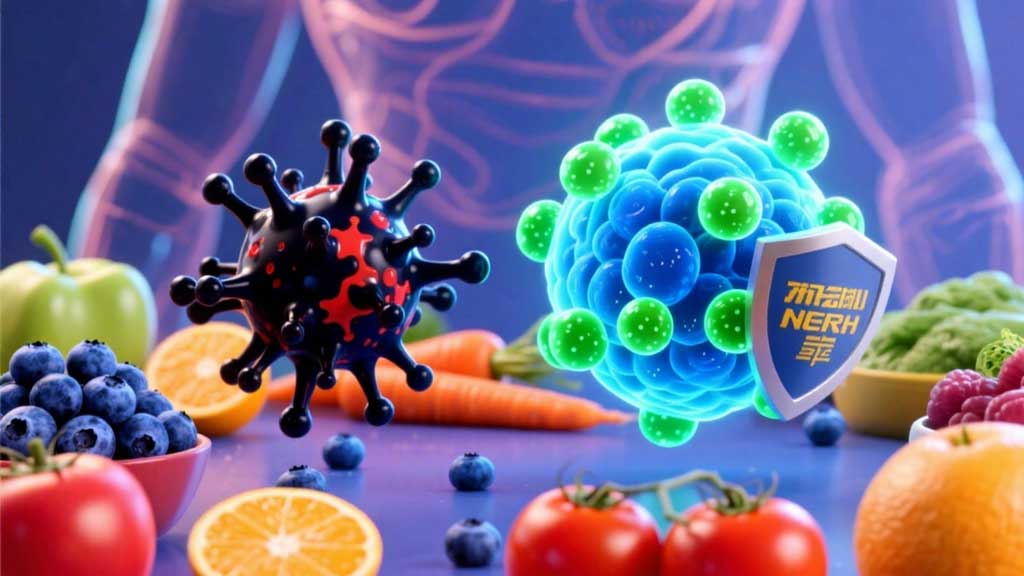Antioxidants in Food: Your Body’s Natural Defense Against Free Radicals
Every day, our bodies are exposed to free radicals—unstable molecules that can damage cells and trigger various health issues, from premature aging and heart disease to cancer and neurodegenerative disorders like Alzheimer’s. Fortunately, antioxidants act as the body’s natural defenders, neutralizing free radicals before they cause harm.
What Are Free Radicals?
Free radicals are byproducts of normal bodily processes like metabolism. However, external factors such as air pollution, cigarette smoke, UV radiation, and processed foods can increase their numbers. When free radicals accumulate, they create oxidative stress, a condition linked to cell damage and chronic disease.
How Do Antioxidants Work?
Antioxidants stabilize free radicals by donating an electron—essentially “disarming” them—without becoming unstable themselves. In doing so, they interrupt the chain reaction that leads to cell damage. Antioxidants also assist in DNA repair and support the immune system.
Types of Antioxidants and Where to Find Them
There are many kinds of antioxidants, each with its own role and food sources:
• Vitamin C is water-soluble and helps boost immunity while supporting tissue repair. Found in citrus fruits, strawberries, kiwi, and broccoli.
• Vitamin E is fat-soluble and protects cell membranes. It’s abundant in almonds, sunflower seeds, and leafy greens.
• Beta-carotene, which gives carrots and sweet potatoes their orange color, converts into vitamin A, essential for eye and skin health.
• Lycopene, found in tomatoes and watermelon, may reduce the risk of prostate cancer and improve heart health.
• Flavonoids, found in green tea, dark chocolate, apples, and onions, help reduce inflammation and protect blood vessels.
• Anthocyanins, the purple pigments in blueberries and grapes, are believed to support brain function and slow cellular aging.
Other powerful antioxidants include polyphenols, coenzyme Q10, and glutathione, all of which play important roles in cellular protection.
Health Benefits of Antioxidants
Eating a diet rich in antioxidants can:
• Lower the risk of heart disease and inflammation
• Help prevent certain types of cancer
• Protect brain cells and slow cognitive decline
Conclusion
Antioxidants are more than a nutrition trend—they are vital allies in your body’s fight against oxidative stress. Eating a colorful, whole-food-based diet is a simple and effective way to boost your antioxidant intake and support long-term health.
So, how many antioxidants have you eaten today?
